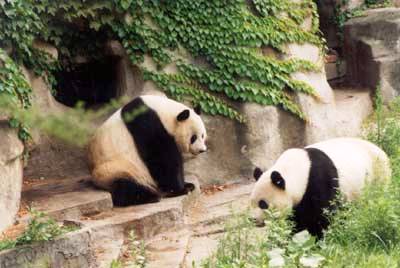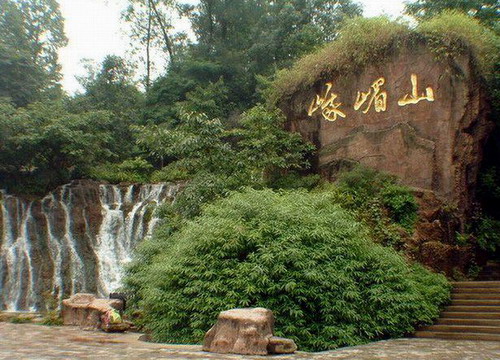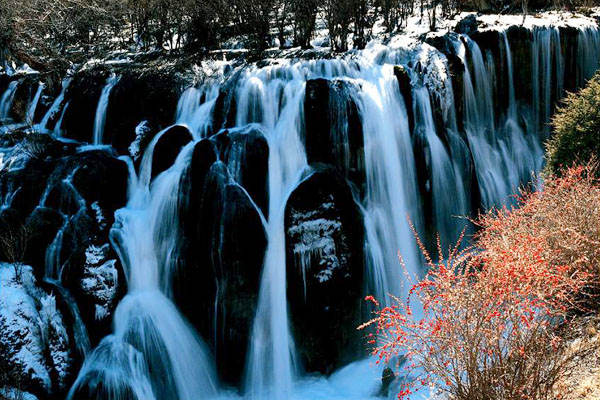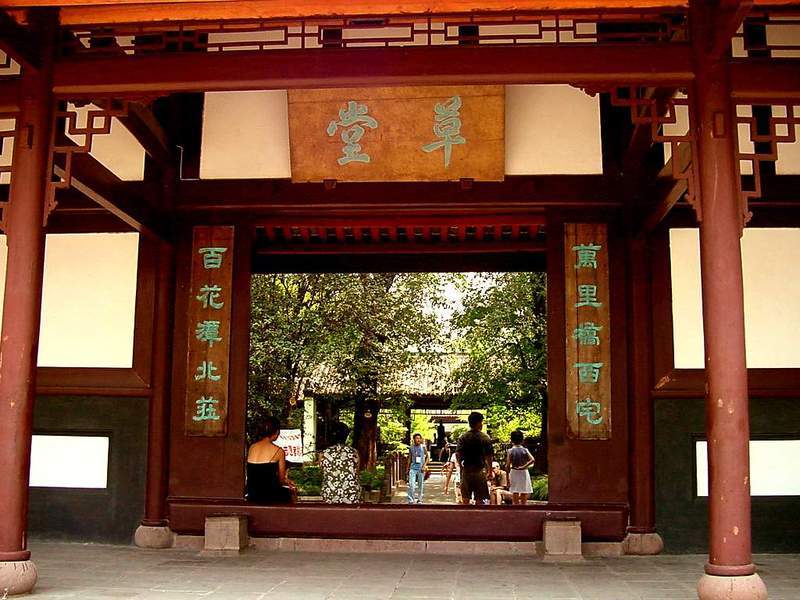Qingcheng Hou Mountain

Overview
In a bid to bolster tourism, the local authorities have opened up Qingcheng Hou Mountain to trekkers. Its base lies about 15 km northwest of the base of Qingcheng Mountain proper. With over 20 km of hiking trails, this mountain offers a more natural environment than the temple-strewn slopes of Qingcheng Mountain, with Frive Dragon Gorge offering dramatic vistas. There is a cable car to help with part of the route, but climbing the mountain will still require an overnight stay, either at the mountain itself or in nearby Dujiangyan.
There's accommodation in Tai'an Temple, at the mountain's base, or at Youyi Village, about halfway up.
Know more
The anterior of Mt.Qingcheng is famed as the most serene mountain under heaven. With the snow-capped Minshan Mountain in the back and the fertile land of Chengdu Plain in the front. The Mountain is surrounded by a string of mountain peaks which look like a city wall. It is covered all the year round with green and dense woods and forests, hence the name Qingcheng(meaning literally green city). In the morning one can see sunrise and at night magical lantern.
Mt.Qingcheng is the birthplace of Chinese Taosim. In the Eastern Han Dynasty(126-144) the Heavenly Master Zhang Ling, the founder of Chinese Taosim, came to Mt.Qingcheng to preach Taosim in his cottage. Even now there are many magical stories about him, such as the Zhibicao Trough and Xiangmo (subduing devil) Stone. Since the Jin Dynasty(265-420) and Tang Dynasty(618-907), more Taoist temples and palaces has been built and have attracted a alarge number of pilgrims and tourists. It has been reputed as China ' s fifth Heavenly Abode of Taosim and a "city of celestial beings". Throughout the ages, countless statesmen and scholars never failed to tour it and leave some valued pieces of calligraphy and paintings.
Must see
The famous scenic sites are: the Shangqing Palace, the Jianfu Palace, and the Tianshi Cave, etc. Among them, the Jianfu Palace, with extraordinary bearing, stands against the barranca under the Zhangren Peak. It was built in Tang dynasty, and repaired for several times in the successive dynasties, now only two halls and three compounds are preserved. In the left side of the Jianfu Palace is the princess of Mingqing mansion site. Going west for 1 kilometer, visitors can find the "the natural pictures". With the rocks uprightly standing, cloud and mist thickly wreathing, visitors often fancy that they are in pictures.
kilometer, visitors can find the "the natural pictures". With the rocks uprightly standing, cloud and mist thickly wreathing, visitors often fancy that they are in pictures.
Two kilometers towards north comes the Tianshi Cave, the major temple of Mt. Qingcheng. According to legend, in the Eastern Han dynasty, Zhang Daolin had been here for preaching. In the Three Kings Palace, the main hall of the Tianshi Cave, the stone inscriptions of three kings of Tang dynasty were laid. The palace contains wood and stone tablets of past dynasties. The most famous include the Tang Xuanzong's imperial decree and Yuefei's handwriting of Zhu Geliang's Chushibiao, etc. Coming out from Tianshi Cave and passing the Fangning Bridge, visitors can reach the Zhushi Palace; unceasingly walk straight north is Chaoyang Cave; out of it, climbers could see the Shangqing Palace, which situates on a high platform. The Shangqing Palace was first built in the Jin dynasty and the extant temple was built during the reign of Tongzhi in Qing dynasty. There are stone inscriptions as "the fifth famous mountain under the sun", " the first peak in Mt. Qingcheng" and so on in it. With its annually average temperature of 15 centigrade, Mt. Qingcheng belongs to humid subtropical monsoon climate. It is reputed as "Dong Tian Fu Di" (means wonderful mountain and happy place), "the fairyland on earth".
On Mt. Qingcheng, tall ancient trees reach to the sky; emerald vines blot out the sun; ravines are scattered lengthwise and sidewise; marvelous peaks stand mysteriously. The mountain appears extremely deep and serene; therefore, it enjoys the great fame as "the most peaceful and secluded mountain under heaven.
4 days Chengdu and Mount Qingcheng tour






